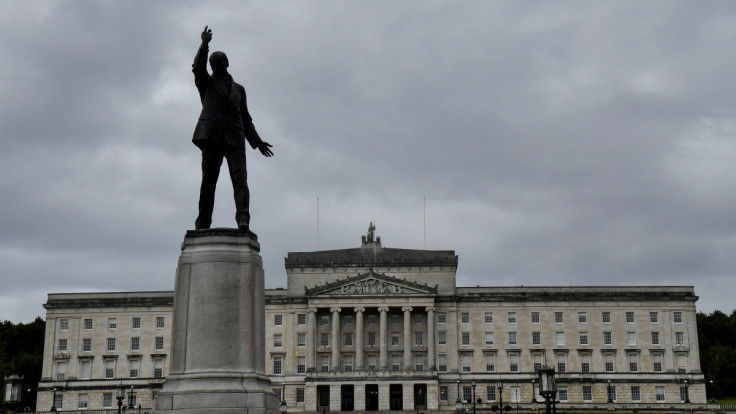UK delays Northern Ireland election in hope of progress in EU talks
The British government on Wednesday pushed back a deadline to hold a new election in Northern Ireland until at least March to provide space for progress in talks between London and Brussels on post-Brexit trade rules governing the region.

The British government on Wednesday pushed back a deadline to hold a new election in Northern Ireland until at least March to provide space for progress in talks between London and Brussels on post-Brexit trade rules governing the region.
Northern Ireland has been without a power-sharing government since the pro-British Democratic Unionist Party began a boycott in February in protest at post-Brexit trading arrangements.
They refused to return after an election in May made Irish nationalists Sinn Fein the largest party.
A six-month deadline to form a government passed last month, and Britain's minister for Northern Ireland, Chris Heaton-Harris, said at the time he had no choice but to hold an election within 12 weeks of the deadline of Oct 28.
Heaton-Harris on Wednesday told parliament he was introducing a delay which meant the 12-week clock will now not start until Dec. 8, with a possible further extension to Jan. 19. if necessary. That would mean an election would need to be held by either March 2 or April 13 next year.
"The legislation I will introduce intends to create the time and space needed for the talks between the UK and the European Union to develop, and for the Northern Ireland parties to work together to restore the devolved institutions as soon as possible," Heaton-Harris told parliament.
The DUP has said it will not join a new government until checks introduced between some goods moving to Northern Ireland from Britain are scrapped.
Technical talks recently resumed for the first time in seven months on the Northern Ireland protocol, the part of the Brexit deal that mandated the checks. The British government negotiated and signed the agreement but then had second thoughts about it.
Irish Foreign Minister Simon Coveney last week said that a reworked agreement was possible by the end of the year.
The later date could overshadow the 25th anniversary of the 1998 Good Friday Agreement, which is due to be marked in early April.
Under the terms of that agreement, which largely ended three decades of political and sectarian bloodshed, nationalists and unionists are obliged to share power in a cross-community government.
But that requirement has led to repeated stalemates in recent years. Britain's withdrawal from the European Union has also complicated the Good Friday Agreement, which assumed an open border between Northern Ireland and EU member Ireland.
Heaton-Harris said he would take "limited but necessary steps" to protect Northern Ireland's public finances and the delivery of public services.
However he ruled out the possibility that a long period without a devolved government would lead to a form of joint authority with the Irish government, which has said it should have a say under the terms of the Good Friday deal.
"The UK government is absolutely clear that the consent principle governs the constitutional position of Northern Ireland under which Northern Ireland is an integral part of the United Kingdom. We will not support any arrangements that are inconsistent with that principle," he said.
(Writing by Conor Humphries, Editing by Kylie MacLellan and Angus MacSwan)
Copyright Thomson Reuters. All rights reserved.





















